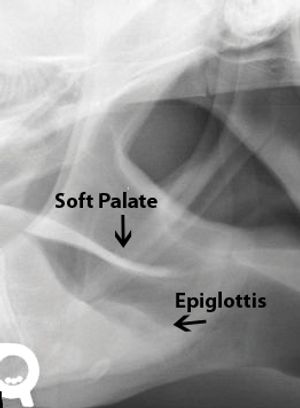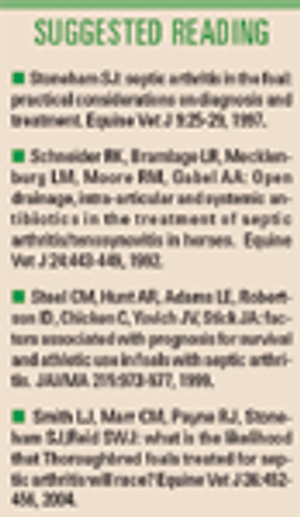
The three most common gastrointestinal problems that are seen in the foal include colic, gastric ulcer disease and diarrhea. Though these are also common in the adult the foal has different specific etiologies and treatments.

The three most common gastrointestinal problems that are seen in the foal include colic, gastric ulcer disease and diarrhea. Though these are also common in the adult the foal has different specific etiologies and treatments.

Older horses can present with the same problems as the younger horse but there are a few specific problems that occur with age or worsen with age.

Aging is not a disease. It occurs in all organisms if they live long enough! Some definitions that are helpful when speaking about aging include life span, life expectancy, chronologic age, biologic age and demographic age.

Septic arthritis and osteomyelitis are recognized sequela to bacteremia/sepsis in the neonatal foal.

The neurologic examination of the foal has many similarities as that of the adult horse but there are some important differences.

Pituitary Pars Intermedia Dysfunction, PPID, also known as equine pituitary adenoma, equine Cushings, and equine pituitary hyperplasia is the most common endocrinologic problem in horses.

Sepsis or septicemia in the equine neonate is a common cause of mortality in the foal.

Dysphagia in the neonatal foal manifests itself as the presence of milk in the foal's nares after nursing. Milk reflux in a foal should not be ignored. Aspiration pneumonia is the usual secondary consequence.

During foaling season, equine practitioners are asked to examine foals that present with lameness or joint effusion. Many times the owners will report that the foal was noticed to be a little "off" for the past few days, and they assumed the mare stepped on it. These words should alert the practitioner to the real possibility of the foal having a septic arthritis or osteomyelitis. Because of the seriousness of the potential problem, all lame neonatal foals should be considered to have a septic joint, epiphysis or physis until proven otherwise.

Published: March 1st 2006 | Updated:

Published: April 1st 2005 | Updated:

Published: October 1st 2011 | Updated:

Published: October 1st 2011 | Updated:

Published: October 1st 2011 | Updated:

Published: October 1st 2011 | Updated: